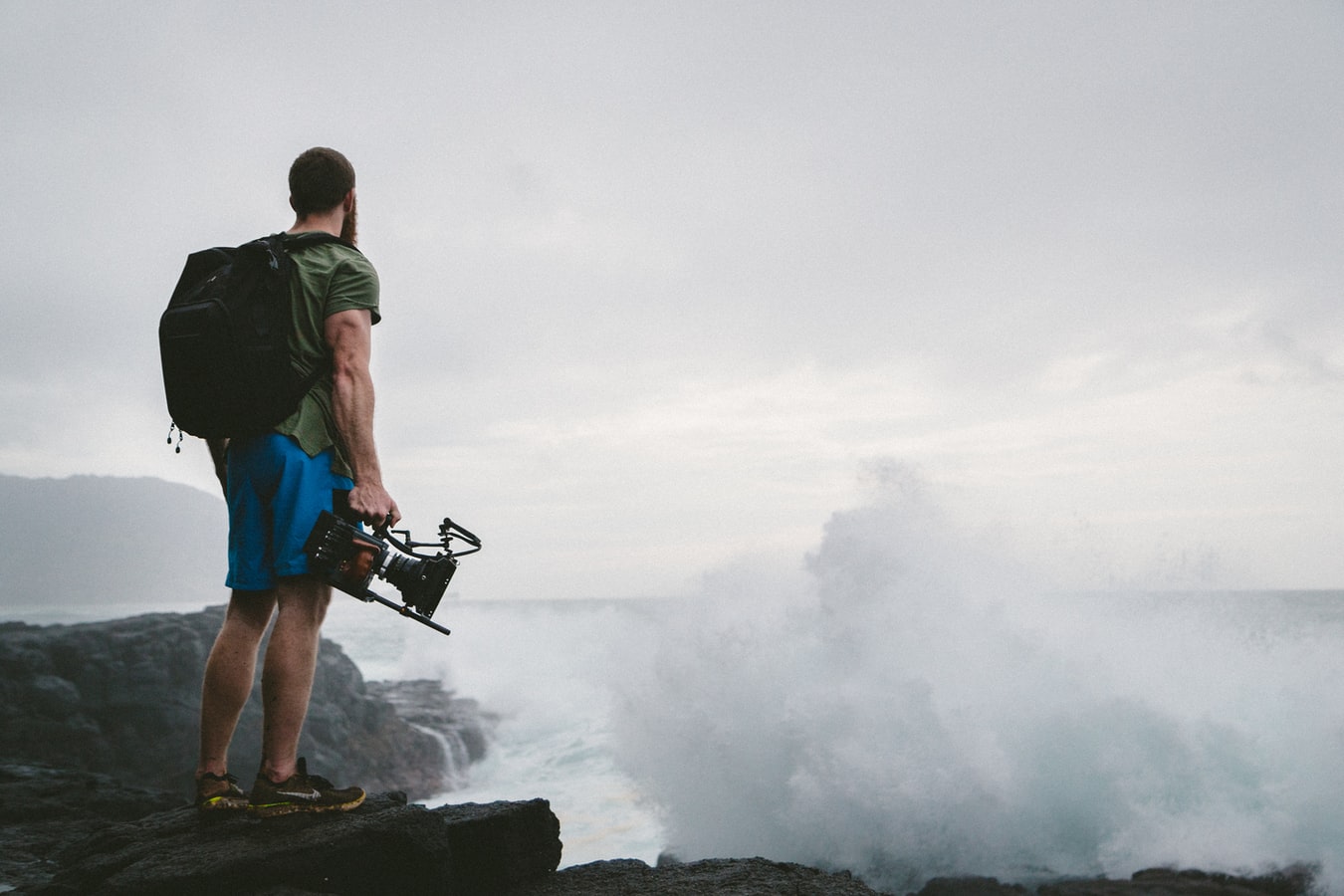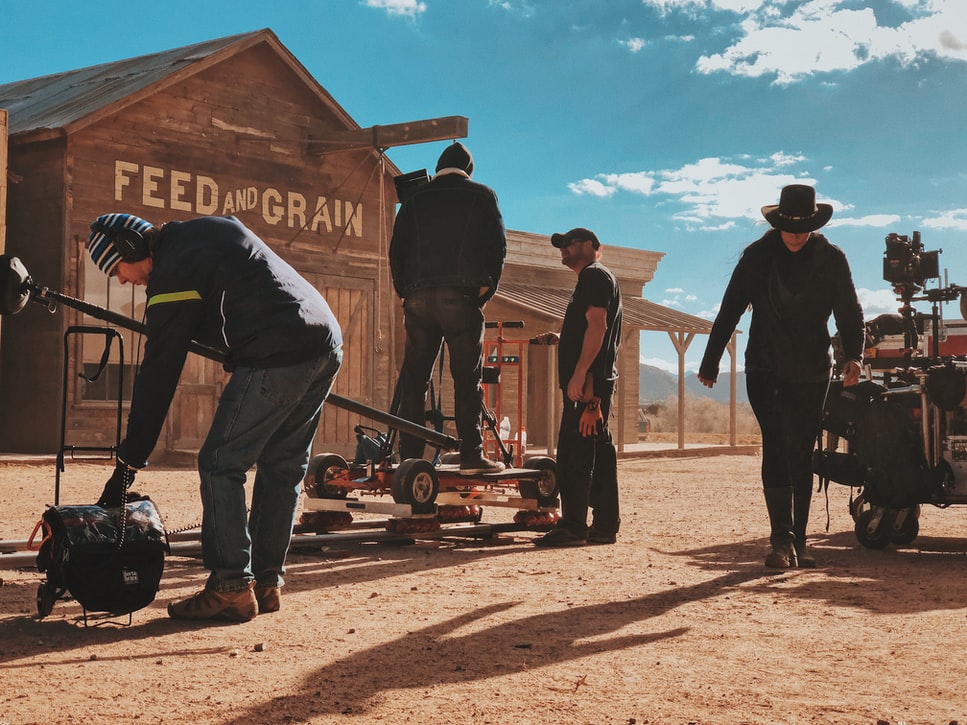
© Jakob Owens
Location scouting isn't always a priority in today's movie world and that is because technology has moved on in leaps and bounds. After all, why travel to far-flung locations when you can simply create the backdrops you need using CGI and green screen? In some regards, this has made it easier for filmmakers to create the movies they want, without the need to transport actors, film crews, and equipment across the country or over borders.
Of course, there are reasons why it is important to still use location shooting and that is because of authenticity.
We aren't only talking about shooting a movie in a particular country because you want to use popular landmarks as backdrops to your scenes. We are talking about the way real locations can do a better job of drawing audiences into the movie. Dances With Wolves, Apocalypse Now, and Deliverance are just three classic movies that benefited from shooting in real locations.
So, should you be making a movie, be that a would-be Hollywood blockbuster, a small independent production, or a music video or TV ad, never undermine the importance of location within your project. But to avoid any location mishaps, consider our tips below. Especially if you're new to filmmaking, the following should be useful to you.
Here are our essential tips for location scouting.
#1: Know your story
The script will determine the locations you choose for your shoot. This is a no-brainer of course, but there are certain things to keep in mind.
Firstly, consider the time of year that your story is set in. If you're after summer scenes that require a lot of sunshine, you obviously don't want to visit a country that could be beset by rainfall. The UK can be particularly problematic in this regard. The same applies to any location that is overly sunny. If you want to capture wind-swept and rainy scenes that are set during the autumn or winter, you probably shouldn't choose a location that is predominantly sunny throughout the year.
Of course, you can use rain machines and other pieces of tech to create the weather scenes you want, so you don't necessarily need to sweat over this aspect of location scouting. But if you are looking for somewhere that suits the purposes of your story, this might be something you take into consideration.
The other thing to keep in mind is the number of locations you need in your story. Instead of travelling around the country for individual scenes, it is a good idea to find a town or city that has most of the locations you need in relatively close proximity. You will save time and money this way as you won't need to travel long distances to reach new areas.
#2: Consider safety
Don't choose a location last minute as you will have little idea of the safety precautions needed.
We need only consider the tragedy that took place during the shooting of Midnight Rider to understand why. If director Randall Miller had committed to more research, he would have known not to shoot on the railroad trestle bridge above the Altamaha River in Wayne County, Georgia. The fact that he didn't get permission to shoot there also added to the dangers of shooting in this location. Sadly, camera assistant Sarah Jones lost her life because of mistakes made.
For you, the message is clear. Make sure the location you intend to shoot in is safe for your crew, and be sure to get permission before shooting there.
You should also check weather reports. Many movies have been affected by adverse weather and various freaks of nature, and while these can be difficult to predict, it is still worth committing to research. Injuries occurred on the set of Waterworld, for example, when the crew were caught up in a squall while filming in Hawaii. And flooding laid waste to many of the sets of The League Of Extraordinary Gentlemen when filming in Prague. Thankfully, no actors and members of the crew were injured as far as we know, but several Czech residents were killed.
So, think carefully before choosing a location and ask yourself: Is it safe to shoot here? Risk assess everything by watching weather reports, speaking to local governments, and learning more about the areas you are considering.
#3: Think about accessibility
Accessibility is key when it comes to the locations you choose. You will need room for the film crew and space for the equipment you are planning to use, so it's no good shooting in a location that makes shooting impossible.
Think about both the interior and exterior locations you need and shortlist those that are practical to shoot in. You will save yourself a lot of time and effort if you do, and you won't frustrate any of the people that will be working with you.

© Chris Murray
#4: Be mindful when considering remote locations
Shooting in a crowded town or city will pose its own problems but you need to be extra mindful of remote locations. Filming scenes in the Outback or the Amazon Jungle might seem like a good idea when you're after authenticity but there are various practicalities you need to consider. Of course, we aren't only talking about far-flung locations. The country you live in will also have areas that are remote from nearby civilisation and that could prove difficult to work in.
You have to ask yourself:
- Will it be easy to transport what I need from A to B?
- Will I get a phone signal?
- How far away are healthcare facilities?
- Are there any dangers I need to be aware of?
There are ways to manage in a remote location, of course. With 4G coverage, you may be able to work from anywhere, so a data plan with Smarty UK could be the answer to any phone-related problems. You can also hire your own team of medical professionals to be with you on set.
But as for transport accessibility and particular dangers, these need to be taken into consideration before you settle on the location.
#5: Make sure you have permission to shoot somewhere
We have already alluded to this when talking about safety but this isn't the only reason why you need to get permission. There are legalities to consider as you could have your production shut down if you don't get the relevant permits from the local council.
Now, you could steal shots here and there, but it's not always worth the risk. One Reddit user spent a weekend in the city jail for not having the relevant permit for his student film. You need to create a location release form, get it signed by the local powers that be, and also get permission from local business owners whose grounds you may be trespassing on.
There is some advice here on film location permits so have a read and follow the advice within. There will be expenses attached but as you might face more expenses if you are slapped with a fine, this shouldn't be something you overlook.
#6: Factor sound into the equation
A lot of the sound you need will be created in the post-production process. However, you still need to consider sound when choosing a location.
You will face a lot of disruption if there is the sound of heavy traffic from a nearby road, for example. You will also face disruption if there is the sound of aeroplanes overhead or industrial machinery from a nearby factory or farm. Your actors will have a hard time trying to make themselves heard if there is a lot of noise in the surrounding area, and the director will need a bigger megaphone if he is constantly being disrupted.
So, visit the location first, check for potential noise interference, and run tests using your audio equipment.
#7: Remember authenticity
Do you really want a plane flying overhead when you're filming a movie set during the Civil War? No, of course you don't, but this might happen if you choose a location near an airfield.
Authenticity is key when drawing in your audience but they will soon be taken out of your picture if they spot anything inaccurate. You will experience embarrassment too, especially if your movie is named and shamed in an article about movie mistakes
Think carefully then when scouting for a location.
You should consider such things as the architectural style of nearby houses and how that might fit in with the time period of your movie. You should watch out for nearby billboards too and any other form of advertising that could go against the era your movie is set in. Such details can sometimes be missed if they are far in the background but they will still affect your movie if they are still in shot. Of course, you could always digitally remove them later but it's still worth checking the location first to save time and money.
Finally
The locations you choose are integral to the movie you are trying to create. Especially if you're not planning on using green screen for the entirety of your movie, you do need to choose carefully. Consider our suggestions then and commit to further research on the dos and don'ts of location scouting.



















